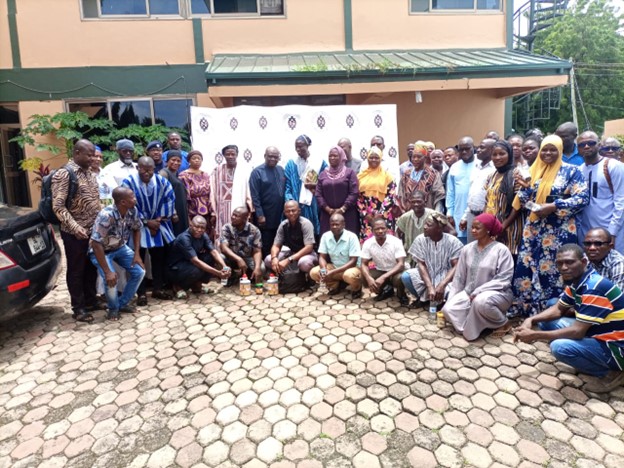…efforts aimed at propelling industrialisation and economic growth
The Northern Regional Conference and Stakeholder Engagement focused on Implementation of the African Continental Free Trade Agreement (AfCFTA) concluded recently – with a strong commitment from government to bolster Micro, Small, and Medium-sized Enterprises (MSMEs) in order to fully capitalise on the advantages presented by AfCFTA.
The objective is to expedite industrialisation and foster economic transformation, particularly among young entrepreneurs, by establishing an enabling policy framework.
This initiative aims at empowering MSMEs to tap into the potential of agro-processing and value addition; not only for local consumption, but also for duty-free and quota-free exports to African nations within the ECOWAS regions. To facilitate this, targetted capacity-building programmes are being offered to MSMEs and agro-processors – focusing on enhancing the production of quality rice and Shea butter to meet market demand.
The recently held regional conference, organised by the Ministry of Trade and Industry (MOTI) in collaboration with the National AfCFTA Coordination Office, aimed to educate MSMEs about the specifics of AfCFTA. Topics covered included the comparative advantages and challenges of trading under AfCFTA; the role of Customs as the competent authority for such trading; and the necessary preparations for harnessing benefits of AfCFTA implementation.
Dr. Fareed Arthur, National Coordinator-AfCFTA, highlighted that the inception of AfCFTA aims to unlock approximately US$1.2billion worth of African resources, thus contributing to growth of the continent’s Gross Domestic Product (GDP) of US$3.4trillion. Despite Africa’s vast natural resources and a population of 1.4 billion, the continent has historically contributed only three percent to global trade.
Dr. Arthur emphasised the need for a paradigm-shift in Africa’s trading patterns, particularly since trade within the continent currently stands at a mere 12 to 15 percent.
Ghana’s significant resource potential led to AfCFTA headquarters being established in the country. This move encourages collaboration among citizens and member-nations, fostering robust industrialisation across Africa.
With 44 out of 55 African countries having ratified the free trade agreement, AfCFTA’s success relies on creating structures that facilitate free movement of goods, services and people throughout the continent.
Alhaji Shani Alhassan Shaibu, the Northern Regional Minister, noted that while the region possesses substantial potential, only a handful of viable enterprises are capitalising on AfCFTA, leaving others struggling. He urged local enterprises to form vibrant associations and leverage AfCFTA to produce high-quality goods for international markets. Additionally, he called on local institutions to provide all necessary support frameworks to harness the AfCFTA’s potential.
Divine Kutortse, the Enterprise Support Officer-AfCFTA, emphasised that the recent event aimed to raise awareness and foster an environment conducive to Ghanaian businesses and stakeholders, maximising the opportunities presented by AfCFTA. Plans include widespread sensitisation across the country, and identifying unique local businesses in each region which can contribute to economic growth.










